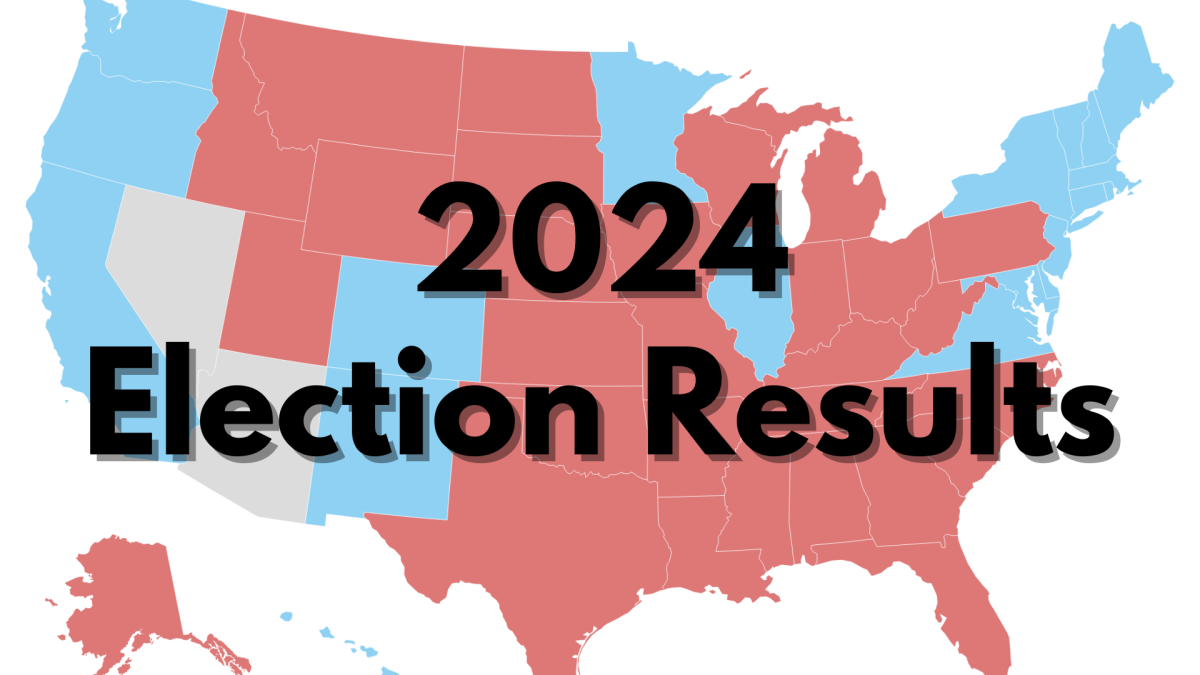As Americans cast their votes in the 2024 election, the nation’s eyes were on the fight for the White House. California voters also decided critical issues on the ballot, with measures to redefine policies in areas such as housing, marriage and criminal justice.
While there are still ballots to be counted, the results in most major races are largely determined. Here’s a look at some of the results most relevant to the Sacramento State community.
What initially appeared to be a close contest between Democrat Kamala Harris and Republican Donald Trump ended decisively, with Trump securing the states he needed to return to the White House. For the first time in his three presidential campaigns, he also won the popular vote by a margin of over 3 million votes.
Trump was able to claim victory with 270 electoral votes, before all states had finished their counts. Wins in key battleground states, including Georgia, Pennsylvania and Michigan solidified the landslide over Harris.
Democrat Adam Schiff defeated Republican Steve Garvey by a wide margin in California's 2024 Senate contest. Democratic incumbents Ami Bera and Doris Matsui each kept their seats in the U.S. House of Representatives for Districts 6 and 7, respectively, in the Sacramento area. Kevin McCarty, meanwhile, won the Sacramento mayoral contest over political outsider Dr. Flojaune Cofer.
Approved by a significant margin, Proposition 2 will let California borrow $10 billion in bonds to support new buildings and renovations for career technical education centers, community colleges and K–12 public schools. The proposal covers modernization of state-wide educational infrastructure, with an estimated total repayment cost of $18 billion, after accrued interest.
Opponents cited the long-term financial impact of the measure, calling the bond a government credit card that taxpayers will be responsible for paying.
Passed by a wide margin, Proposition 3 changes the California State Constitution to recognize marriage as a fundamental right for all. The proposition brings the state constitution into line with current marriage equality legislation by eliminating outdated language from the overturned Proposition 8, which defined marriage as solely between a man and a woman.
Opponents of Prop 3 warned that it may have unintended consequences. Supporters said it is a step forward for future civil rights protections.
RELATED: California to decide on marriage equality with Proposition 3 vote
The approval of Proposition 4 allocates $10 billion in bonds for climate-related projects. The funds will support safe drinking water projects, wildfire prevention and the protection of communities and natural lands from climate-related risks.
Supporters say the measure will address vital environmental demands. Critics cited the cost of bond financing on taxpayers and argued that the existing state budget should be used to cover costs, instead of additional debt.
Proposition 5, which failed to pass, would have allowed local governments to approve bonds for public infrastructure projects and affordable housing with a 55% majority vote instead of the two-thirds currently required.
Supporters said it would have given local communities more control over housing and safety. Critics said the bill would raise property taxes and debt, therefore placing more burden on renters and homeowners.
Proposition 6 aimed to change the California constitution to prohibit slavery of any form in the state, specifically eliminating involuntary servitude as a punishment for crime.
Proponents contended that, in line with more general attempts to change the 13th Amendment, stopping forced work for prisoners constituted a fundamental human right. Though the bill had wide support, and no official opposition statement was submitted for the ballot, it lacked the votes to pass.
Involuntary servitude will remain a disciplinary tool in California's prisons.
The failure of Proposition 32 means that California’s minimum wage will remain at current levels, rather than increasing to the proposed $18 per hour by 2025 for large employers and by 2026 for smaller employers.
Supporters argued it would have helped workers keep up with the cost of living, especially in high-cost areas. Those opposed said the wage hike could have led to increased living costs, job losses and that it would have disproportionately affected small businesses.
Proposition 33 aimed to enhance the power of local governments to implement rent control policies on residential properties by overturning the Costa-Hawkins Rental Housing Act.
Advocates claimed that localized rent control measures would alleviate the burden on tenants struggling with high rental costs and contribute to the stabilization of neighborhoods. Critics argued that the proposal could have resulted in a decline in housing development, deter investment in new residential projects and adversely affect property tax income.
Prop 33 follows multiple previous measures on rent control that failed to pass; its failure means that the current state rent policies will continue.
The passage of Proposition 34 means that healthcare providers that meet certain criteria must direct 98% of their program revenue towards direct patient care. It also allows for negotiations regarding drug prices for Medi-Cal to be handled on a state-wide basis.
Supporters state that it will enhance patient services and close loopholes exploited by healthcare providers. Critics assert that it is a revenge initiative initiated by the California Apartment Association aimed at the AIDS Healthcare Foundation for its support of rent control efforts. The proposal is anticipated to encounter legal obstacles.
Proposition 35 will permanently tax managed health care insurance plans to pay Medi-Cal services and prevent the state from using the funds for other services.
Proponents state that Prop 35 will guarantee consistent financial support for primary care, mental health and emergency services throughout California without additional taxes.
Approved by a significant margin, Proposition 36 allows felony charges to be filed against individuals for some drug and theft crimes, as well as repeat offenders.
In targeting organized retail theft and drug offenses, proponents of Prop 36 claim it will improve public safety while simultaneously supporting addiction treatment. Critics argue it brings back punitive “war on drugs” policies that will raise prison expenses and take funds away from rehabilitation and prevention initiatives.

























































































































